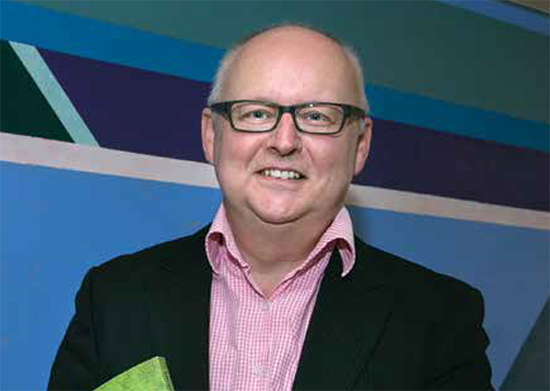
Geoff Kemp explores the contemporary dilemmas about press freedom, censorship, metadata, watchdogs and democracy.
COMMENTARY: The headlines are worrying: “Spy agencies eavesdrop on Kiwi journalist”, “Investigative journalists deemed a threat by military”, “Reporter’s phone records given to inquiry”, “Chilling attacks on freedom”, “Journalists’ freedom seen as under attack”, “Violation speaks ill of our democracy”.
Worrying … yet oddly reassuring politically and, for me, also professionally. My research into the genealogy of ideas about press freedom and censorship relies on the paradox that public protestations against the tearing asunder of media freedom are prima facie evidence for both the presence and absence of a problem.
If the matter were all or nothing, perfect censorship or untrammelled freedom would leave me without a subject.
After all, how do most of us know what we know about military chiefs targeting investigative journalists as “subversive”? About security services monitoring phone calls by war reporter Jon Stephenson? About “metadata” listing calls by political reporter Andrea Vance being supplied to the parliamentary inquiry into the leaked report about the GCSB?
We know because some journalism continues to perform the role traditionally held to undergird its freedom in democracy - as the vaunted fourth estate, the public’s watchdog.
There is no room for complacency, of course. The question of who is watching who is worrying a lot of people. But the recent barking about the undermining of press freedom met with revelation, apology and denial from government and military, not indifference. A Google news search on Stephenson and Vance throws up hundreds of hits about the affair.
The Fourth Estate has done its duty, it seems.
Burst of energy
By the time you read this, the burst of energy around the issue of press freedom will be yesterday’s news, superseded by other topics. This too is reassuring if it means returning to the business of journalism that journalists leapt to defend – investigating and informing in the public interest.
That was the promise held out in recent articles: journalists are the eyes and ears of the public, the Fourth Estate acts as a proxy for the public’s rights, the media probes power and exposes wrongdoing, an attack on journalists is ripping the democratic fabric, and so on.
This is quite a responsibility to acknowledge, pairing rights or freedoms with correlative duties, as the philosophers say. Can journalism really deliver on its promises?
Most journalists are sincere, if hyperbolic, on this subject, in my view. But they inhabit a cash-conscious, fragmenting news media environment, facing a widening gap between fourth estate rhetoric and reality. Those hundreds of hits featured many more commentators proclaiming the watchdog’s value than investigative journalists tasked with demonstrating it. They were promising outcomes deliverable, if at all, by companies they do not control.
Individual journalists have the same freedom as you or I. An effective watchdog has the extra resources, institutional muscle and influence to turn information and opinion into public opinion and make governments sit up and take notice, whether out of principle or self-interest.
Contrary to reports, the Fourth Estate metaphor was not coined by Edmund Burke in an 18th century Britain marked by small-scale newspapers but in a 19th-century context where the dominant Times could argue that an institutionally and economically strong press was needed to be an effective political watchdog – in effect, bigger business with a public purpose.
Today, the watchdog dilemma is acute: the bigger the better, or the more the merrier? The technological revolution that aids surveillance also offers unprecedented online opportunities for individuals to find and provide information and opinion, not least investigative journalists.
Rhetoric and reality
But the public still needs traditional news media committed to its “public service” role and to resisting a divergence of rhetoric and reality, which stems partly from the digital challenge to its business model.
The irony is that the public as a body cannot insist on the Fourth Estate “promise” being fully redeemed. Its logic excludes the public enforcer, the government. The New Zealand Herald adopted a revealing editorial line last year as inquiries into media regulation proceeded in the UK, Australia and, on a smaller scale, here in New Zealand.
Under headlines warning of “Centuries of press freedom under threat”, it contended that media freedom is not justified by a Fourth Estate role, by serving democracy, or by a public interest. “Freedom needs no justification,’” it opined.
The intention was to avoid acknowledging a duty the media might be called on to fulfil, by law. But the “freedom of the private sector” which the Herald claimed does not end the argument. It cannot mean individual freedom of expression, or absolute freedom, since the Herald denies even its own journalists the freedom to pick and choose what to put on the presses at Ellerslie each day, with the law behind it.
And as a property argument it is not invalid but not self-sufficient unless newspapers are like cornflakes, part of our breakfast, rather than being part of our democracy, as the political adviser Joe Haines once said.
Perhaps the underlying media message in difficult times is, “we’ll serve the public when we can, but no promises”.
Dr Geoff Kemp is a senior lecturer in politics, co-editor of Politics and the Media (Auckland: Pearson, 2013), and a former journalist. This article has been republished with permission from the August edition of the University of Auckland newsletter Uninews.
This work is licensed under a Creative Commons Attribution-NonCommercial 3.0 New Zealand Licence.




